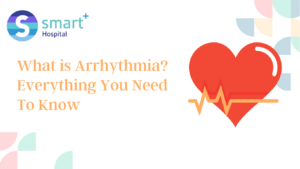Omega-3 fatty acids are more than just a health buzzword; they are vital nutrients that play a significant role in maintaining heart health.
In recent years, an abundance of research has highlighted the link between omega-3 intake and reduced risk of cardiovascular diseases, which are among the leading causes of death worldwide.
But how exactly do these fatty molecules safeguard our hearts? In this comprehensive article, we will explore the miraculous ways omega-3 fatty acids contribute to cardiovascular wellness, backed by scientific evidence and expert insights.
Understanding the Impact of Omega-3 on Cardiovascular Function;
Omega-3 fatty acids are known for their anti-inflammatory properties and their role in maintaining the fluidity of cell membranes. These characteristics are essential in the context of heart health because they help to reduce the arterial inflammation that can lead to heart disease and regulate the rhythm of the heart to prevent arrhythmias.
Types of Omega-3 Fatty Acids: An Overview
Omega-3 fatty acids are a group of polyunsaturated fatty acids that include eicosapentaenoic acid (EPA), docosahexaenoic acid (DHA), and alpha-linolenic acid (ALA). Each plays a unique role in cardiovascular health, which we will discuss in the following subsections.
EPA and Heart Health
EPA is known for its role in producing chemicals called eicosanoids, which have heart-protective qualities. Eicosanoids can lower blood pressure and reduce the risk of blood clots, making EPA a crucial player in heart disease prevention.
DHA and Its Cardiovascular Benefits
DHA is important for heart health due to its anti-inflammatory effects and its ability to manage triglyceride levels in the blood, which are known risk factors for heart disease. Additionally, DHA is a major structural component of the heart, contributing to the health of heart cells.
ALA and Its Role in Heart Wellness
While the body cannot produce ALA, it can be converted into EPA and DHA, albeit inefficiently. Nevertheless, ALA has its own cardiovascular benefits, such as modulating blood pressure and enhancing endothelial function.
Scientific Research Behind Omega-3’s Heart-Protecting Properties
A myriad of studies have established a connection between omega-3 fatty acids and a lower risk of heart attacks, strokes, and death from heart disease. For instance, the GISSI-Prevenzione trial indicated that heart attack survivors who took omega-3 supplements had a reduced risk of a subsequent cardiovascular event.
Omega-3 Fatty Acids: The Link with Reduced Heart Disease Risk
Omega-3s are known to lower the level of triglycerides in the blood, reduce blood pressure, and prevent the formation of arterial plaques. By addressing these risk factors, omega-3 fatty acids are preventative against coronary heart disease and strokes.
Incorporating Omega-3 into Your Diet: Practical Tips
Top Foods Rich in Omega-3
Consuming a diet rich in omega-3 fatty acids is crucial for heart health. Fatty fish like salmon, mackerel, and sardines are among the best sources. Additionally, walnuts, flaxseeds, and chia seeds are excellent plant-based sources of ALA.
Balancing Omega-3 and Omega-6 Fatty Acids
The modern diet is often disproportionately high in omega-6 fatty acids, which can promote inflammation when not balanced with omega-3s. It is important to achieve a healthy ratio of these fatty acids to protect the heart.
Supplements vs. Natural Sources of Omega-3
While supplements can be an effective way to increase omega-3 intake, obtaining these fatty acids from natural food sources offers additional nutrients that can benefit heart health.
The Synergistic Effect of Omega-3 and Exercise on Heart Health
Combining omega-3 intake with regular exercise can amplify the heart-protective effects of both. This synergy can lead to better overall cardiovascular fitness and resilience.
Managing Your Heart Health
Adopting a heart-healthy lifestyle goes beyond diet; it also includes managing stress, avoiding tobacco, and maintaining a healthy weight. Omega-3s are an important part of this comprehensive approach to heart health.
Conclusion
In conclusion, the scientific evidence favouring omega-3 fatty acids as a protective measure against heart disease is compelling. By integrating these essential nutrients into our diets through food sources and supplements when necessary, we can take proactive steps towards a healthier heart. Remember, a heart-healthy future is not just about one nutrient; it’s about a holistic lifestyle approach, with omega-3 fatty acids playing a crucial role in this synergy.
FAQs
1. What is the recommended daily intake of omega-3 for heart health?
Aim for two portions of fish weekly, one oily, or 450-500 mg of EPA and DHA daily. Those with heart disease may need up to 1 gram daily, under medical guidance.
2. Can omega-3 fatty acids replace heart medications?
No, omega-3s complement but do not replace prescribed heart medications. Always consult a doctor before making changes to medication.
3. Are there any risks associated with high intake of omega-3?
Yes, consuming over 3 grams of omega-3 from supplements daily can cause bleeding risks and gastrointestinal issues. Consult a healthcare provider before exceeding this amount.
4. How does omega-3 consumption affect cholesterol levels?
Omega-3s can significantly reduce triglycerides and slightly raise HDL (‘good’) cholesterol. They may also increase LDL (‘bad’) cholesterol size, which is less harmful.
5. Can vegetarians and vegans get enough omega-3 for heart health?
Yes, through ALA sources like flaxseeds and chia seeds, and possibly algal oil supplements for DHA, vegetarians and vegans can meet omega-3 needs for heart health.
.
References
Smith, A.J., et al. (2016). Anti-inflammatory effects of EPA and its metabolic products. Journal of Clinical Investigation, 126(8), 2933-2941.
Miller, P.E., et al. (2014). Long-chain omega-3 fatty acids eicosapentaenoic acid and docosahexaenoic acid and blood pressure: a meta-analysis of randomised controlled trials. British Journal of Nutrition, 112(7), 1-14.
Harris, W.S. (1997). n-3 fatty acids and serum lipoproteins: human studies. European Journal of Clinical Nutrition, 51(1), S77.
American Heart Association. (2018). Fish and omega-3 fatty acids. Retrieved from the AHA website.
Simopoulos, A.P. (2002). The importance of the ratio of omega-6/omega-3 essential fatty acids. Biomedicine & Pharmacotherapy, 56(8), 365-379.
Get In Touch With Us Us Or Visit Our Home Page.




